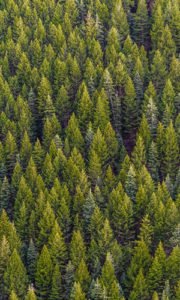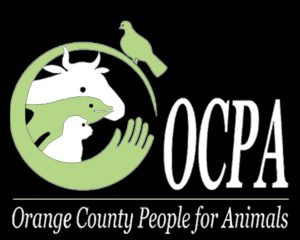Traditional farming practices have increasingly given way to factory farms which are taking a tremendous toll on the environment. There are now approximately 70 billion livestock on earth, nearly ten times the number of human beings.
Other issues impacting our planet and the lives it sustains include rainforest depletion, topsoil erosion, water depletion, water and air pollution, global warming, desertification and more.
Eighty-five percent of all U.S. agricultural land is used in the production of animal food, which in turn is linked with deforestation, destruction of wildlife species, loss of soil productivity through mineral depletion and erosion, overgrazing and desertification.
 Loss of rainforests in Southern Mexico and Central America have been caused chiefly by the importation of rainforest beef into the United States. Members of 20 to 30 different plant species, 100 different plant species, 100 different insect species, and dozens of bird, mammal, and reptile species have been destroyed in the production of each fast food hamburger made from rainforest beef.
Loss of rainforests in Southern Mexico and Central America have been caused chiefly by the importation of rainforest beef into the United States. Members of 20 to 30 different plant species, 100 different plant species, 100 different insect species, and dozens of bird, mammal, and reptile species have been destroyed in the production of each fast food hamburger made from rainforest beef.
More than half of the topsoil in the Western United States has been lost since cattle began overtaking the Western plains 150 years ago. Topsoil is the most precious commodity a farmer has. It takes nature anywhere between one hundred and eight hundred years to produce an inch of topsoil.
And livestock grazing has turned one-third of the earth’s land to desert. As a result, floods are becoming a more common occurrence throughout the world.
2,500 gallons of water are required to produce 1 pound of beef. 5,214 gallons are required to produce a pound of beef in California. This is because of the huge amounts of grains grown to feed cattle and the water used to grow those grains.
 The Ogallala aquifer is the largest body of fresh water on earth and it is being depleted by farmers at an alarming rate. More water is withdrawn from the Ogallala aquifer every year for beef production than is used to grow all the fruits and vegetables in the entire country. Wells throughout the nation are drying up. The same pattern is happening all over the world.
The Ogallala aquifer is the largest body of fresh water on earth and it is being depleted by farmers at an alarming rate. More water is withdrawn from the Ogallala aquifer every year for beef production than is used to grow all the fruits and vegetables in the entire country. Wells throughout the nation are drying up. The same pattern is happening all over the world.
The waste from today’s feedlot operations are not being returned to the soil for rebuilding topsoil, but end up in our groundwater, rivers, streams, and oceans. Pfiesteria is just one of the illnesses caused by animal waste in our waterway. Massive amounts of chemical fertilizers and pesticides are used causing water pollution.
 Factory farms create massive amounts of air pollution. With billions of farm animals on this earth, the tons of manure from them creates more than 80% of the ammonia emissions that pollute the air.
Factory farms create massive amounts of air pollution. With billions of farm animals on this earth, the tons of manure from them creates more than 80% of the ammonia emissions that pollute the air.
And farm animals are the number one source of methane gas and nitrous oxide, two gasses more effective than carbon dioxide at trapping heat in the atmosphere – which then results in global warming.
The rampant usage of antibiotics in farm animals has caused humans who consume meat and dairy products to create an intolerance to the effectiveness of antibiotics used to treat human illnesses.
 And since it takes roughly 16 pounds of grain to produce 1 pound of beef, the majority of grains and soy beans grown in the world it used to feed livestock instead of hungry humans.
And since it takes roughly 16 pounds of grain to produce 1 pound of beef, the majority of grains and soy beans grown in the world it used to feed livestock instead of hungry humans.
If people switched to a plant-based diet, enough land would be freed up to feed nearly two billion of the world’s people.



